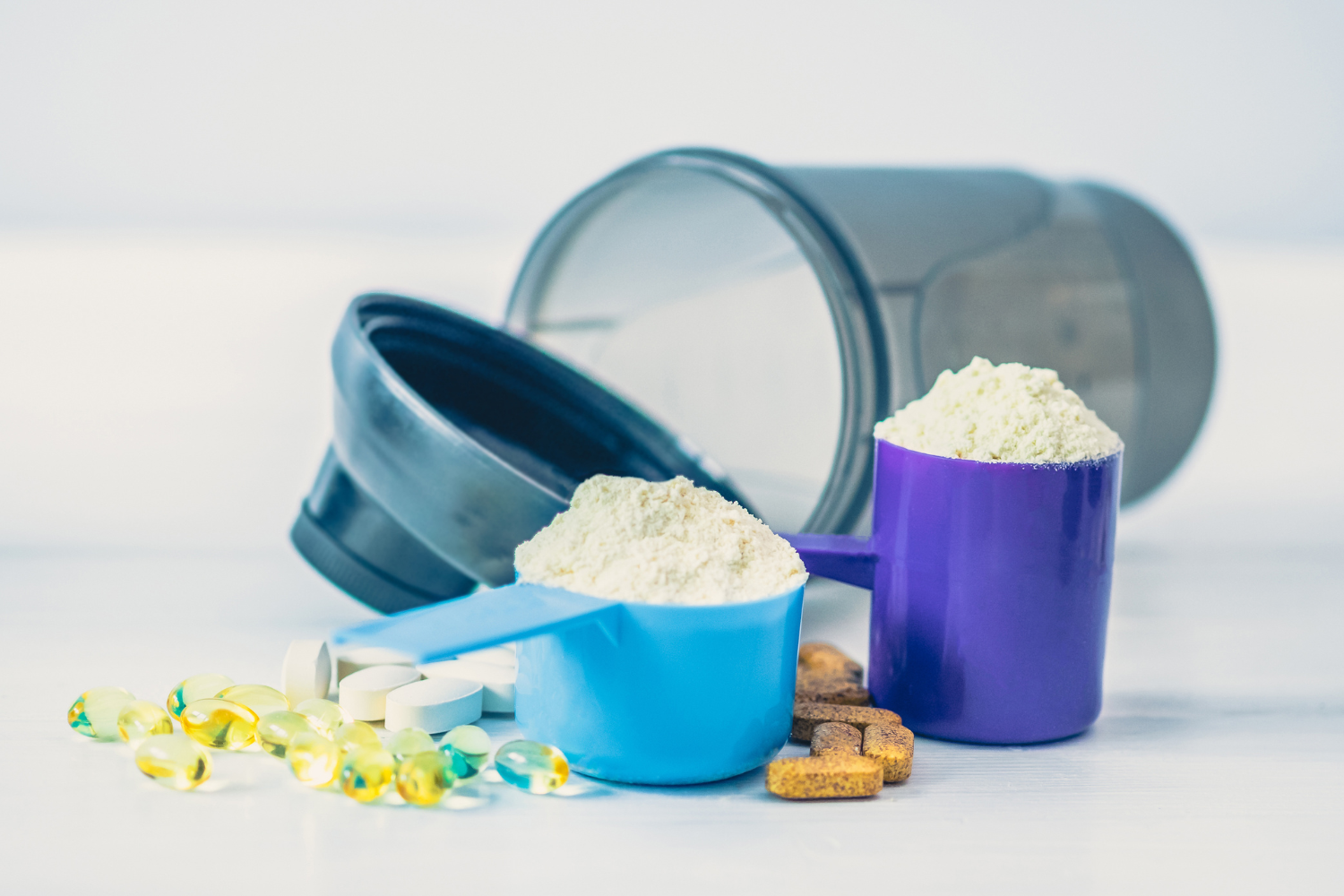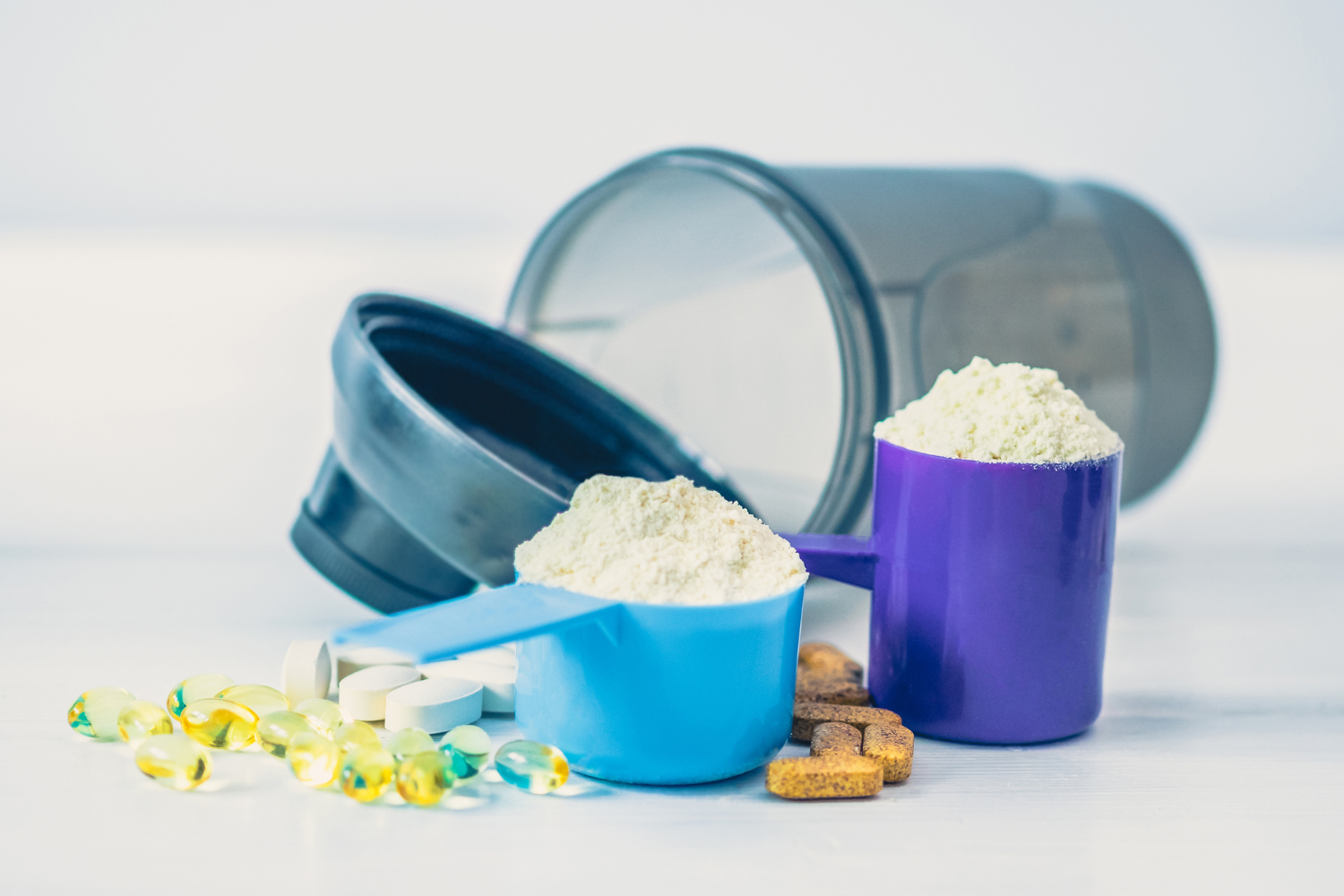Private labeling supplements is a highly profitable business model, especially with the growing demand for health and wellness products like dietary supplements and skincare products. However, taking into account various factors, such as market demand, product quality, and marketing strategies, will also decide the business’ profitability. For instance, customization options and brand differentiation are becoming increasingly essential for success due to the saturated market. So, partnering with a private label supplement manufacturer requires in-depth planning, allowing entrepreneurs to create their own brand without the need to fully develop custom formulations from scratch customization options are still available through many manufacturers, allowing entrepreneurs to modify existing formulations or create semi-custom products. This helps them differentiate their products in a competitive market.
This approach allows business owners to choose high-quality private label products that align with their brand image and target audience. With the right private label suppliers and adherence to good manufacturing practices, you can quickly begin selling private label supplements under your own label design, making it easier to enter the booming supplement industry with minimal investment.
Step 1: Understand Private Labeling and Its Benefits
Private labeling allows entrepreneurs to sell supplements under their brand without creating product formulations. Instead of developing products from scratch, you work with a private label supplement manufacturer that produces the supplements for you. These manufacturers handle the entire production process, ensuring product quality and compliance with good manufacturing practices. As a business owner, your role is to focus on label design, marketing, and selling private label products as your own, making it a more efficient and cost-effective approach than starting from zero.

Benefits of Private Label Supplements
Private labeling offers several benefits for entrepreneurs in the supplement industry:
- Lower startup costs: No need to invest in research and development. However, keep in mind that entrepreneurs must invest in ensuring their products comply with FDA and GMP standards because regulatory compliance and quality control are hugely critical.
- Faster time to market: Get your product ready for sale more quickly.
- Focus on branding: You can concentrate on building your brand image and marketing.
- Access to expertise: Work with experienced private label supplement manufacturers who ensure high standards.
- Custom options: Many manufacturers offer a private label program that lets you customize labels and formulas.
Step 2: Choose Your Supplement Niche
Choosing the right niche is essential for your private label supplement business. By targeting a specific area, you can better tailor your products to meet the needs of your target audience. Whether focused on weight loss, sports nutrition, or beauty supplements, having a clear niche makes it easier to stand out in a competitive market.
- Weight loss supplements: Always in demand, targeting fitness enthusiasts.
- Sports nutrition: Great for athletes and active individuals.
- Immunity boosters: Gaining popularity in the post-pandemic world.
- Beauty supplements: Focus on skin, hair, and anti-aging products.

Research Market Trends
Staying informed on the latest market trends and consumer demands is crucial to succeeding in the supplement business. Conduct thorough market research by analyzing sales data, exploring trending dietary supplements, and studying your target market. Popular trends include plant-based supplements, nootropics, and broad spectrum products, all of which are growing in demand. Keeping up with these trends ensures your private label product lineup remains relevant and appealing to customers.
Step 3: Find a Reliable Private Label Manufacturer
Finding the right private label supplement manufacturer is crucial to the success of your business. You must evaluate potential manufacturers carefully to ensure you get high-quality private label supplements that meet your brand’s needs. Look for manufacturers who can deliver on product quality, pricing, and lead times while adhering to regulatory compliance. Here are some key tips:
- Check product quality: Request samples to assess the quality of their supplements.
- Compare pricing: Ensure the pricing aligns with your budget and business goals.
- Review lead times: Confirm they can meet your production timelines.
- Regulatory compliance: Make sure they follow industry regulations, including FDA standards.
- Visit facilities: If possible, visit their manufacturing site and read online reviews to verify reliability.

Ensure Certifications and Compliance
When choosing a private label manufacturer, it’s essential to ensure they meet industry standards and have the proper certifications. Look for manufacturers with certifications like GMP (Good Manufacturing Practices), NSF, and USDA Organic, as these ensure that the supplements are produced in a clean, safe environment with high-quality ingredients.
These certifications improve product quality and help you meet regulatory compliance when selling your private label supplements. It’s also vital that the private label supplement manufacturing process aligns with FDA approval and other legal requirements.
Step 4: Customize Your Supplements
Customizing your supplements allows you to create products that reflect your brand’s vision. Most private label supplement manufacturers offer existing formulations that can be adjusted to fit your needs. You can work with your manufacturer to tweak formulations by changing dosages, adding key ingredients, or choosing specific flavors to align with your niche. This helps your private label business stand out in a competitive market by offering something unique while maintaining product quality and adhering to industry regulations.
Select Product Formats
Choosing the right product format is essential for meeting the needs of your target audience and aligning with your chosen niche. Different formats appeal to different customer preferences and usage habits:
- Capsules: Easy to consume and great for most supplements.
- Powders: Popular in the fitness industry for pre-workout or protein supplements.
- Gummies: Fun and easy for customers who don’t like pills, especially in beauty or immune support.
- Liquids: Perfect for faster absorption and appealing to those who prefer non-pill options.
The proper format can help you differentiate your private label brand in the marketplace.

Step 5: Create Your Brand and Packaging
Building a strong brand is vital to standing out in the competitive supplement industry. Your brand’s identity should resonate with your target audience and reflect your niche, whether it’s sports nutrition, beauty supplements, or general wellness.
Define your brand’s mission and values to communicate what makes your private label products unique. A well-crafted brand image and consistent visual style will help your private label business build trust and loyalty. Whether through your logo, colors, or messaging, your brand should be memorable and reflect the benefits of your supplement line.

Design Eye-Catching Packaging
Eye-catching packaging is essential for attracting customers, both online and in stores. Work with professional designers to create packaging that aligns with your brand’s visual identity and stands out among competitors. Beyond aesthetics, your packaging must comply with regulatory standards.
Be sure to include critical details like supplement facts, ingredient lists, and any approved label claims. Manufacturers and distributors are responsible for ensuring that their products are safe and that labeling claims are truthful and not misleading. Therefore, these must comply with FDA labeling requirements. Accurate labeling is vital for ensuring your product meets industry regulations and avoids potential issues since the FDA only intervenes after products are already in the market.
Step 6: Set Up E-Commerce and Sales Channels
A user-friendly e-commerce platform is vital for selling your private label supplements. Your website should make it easy for customers to browse your products, read descriptions, and check out securely. High-quality product images, detailed descriptions, and customer reviews will help build trust and encourage purchases. It’s also important to offer a smooth, secure checkout process with multiple payment options to ensure a positive customer experience when buying your supplement brand online.
Be sure your platform follows industry regulations for selling nutritional supplements online, including proper label claims and health warnings.
Explore Sales Channels
There are multiple ways to get your private label supplements in front of customers. Here are a few sales channels to consider:
- Direct-to-consumer via your website: Maintain full control over branding and customer interactions.
- Online retailers like Amazon: Reach a larger audience quickly and gain credibility with verified reviews.
- Physical retail stores: Build a local presence and consumer trust by selling in stores.
- Wholesale partnerships: Sell your supplement line in bulk to other businesses looking to stock your products.
For businesses aiming to reach a broad audience, using multiple sales channels increases brand exposure and helps generate successful products in the long term.

Step 7: Market Your Private Label Supplements
A solid marketing strategy is critical to successfully promoting your private label supplements. Using digital marketing channels helps you reach your target audience and build brand awareness. Here are some effective strategies to market your supplements:
- SEO: Optimize your website and product pages to rank higher on search engines for keywords like “dietary supplements” and “private label supplements.”
- Content marketing: To engage and educate your audience, create informative blog posts, videos, and guides related to your supplement line.
- Email campaigns: Build an email list and send your subscribers promotions, updates, and product launches directly.
- Paid advertising: Use platforms like Google Ads or Facebook Ads to target customers looking for supplements.
- Influencer partnerships: Collaborate with industry influencers to increase your product’s visibility.
Leverage Social Media and Influencers
Building a solid social media presence is essential for growing your private label supplement business. Platforms like Instagram, YouTube, and TikTok are perfect for showcasing your products and engaging directly with your audience. Partnering with health and wellness influencers can significantly boost your brand image and create trust among their followers. Once you promote your supplement line through authentic, trusted voices, you can drive more traffic to your site and encourage potential customers to purchase.
Collaborating with licensed healthcare providers and featuring their testimonials can elevate your private label brand’s credibility and boost customer trust.

Step 8: Ensure Quality Control and Customer Satisfaction
Maintaining high product quality is crucial for long-term success in the supplement industry. Work closely with your private label supplement manufacturer to conduct regular quality control checks and ensure consistency across every batch of supplements. This includes verifying that your supplements meet industry regulations and comply with all safety standards. Ensuring top-notch quality keeps your customers satisfied and protects your brand’s reputation.
Be sure to follow good manufacturing practices (GMP) and consistently maintain high quality product standards for all your private label supplements.

Gather Customer Feedback
Collecting and analyzing customer feedback is essential for improving your products and customer service. Encourage customers to leave reviews and share their experiences with your supplements. Use this feedback to refine your formulations, improve packaging, or enhance customer service. Responding promptly to customer reviews—especially addressing concerns—helps build trust and loyalty, showing that your supplement brand cares about its consumers.
Customer feedback is also valuable when expanding your product offerings or introducing new custom formulations.
Step 9: Monitor Performance and Scale Your Business
Tracking your private label supplement business performance is critical to growth. Monitoring important key performance indicators (KPIs) helps you make data-driven decisions that optimize your business. Focus on tracking these metrics:
- Sales figures: Analyze your overall sales to identify growth patterns.
- Customer acquisition cost (CAC): Measure how much it costs to gain each new customer.
- Conversion rates: Track how many visitors to your site turn into paying customers.
- Customer lifetime value (CLV): Determine the long-term value of each customer.
- Return on investment (ROI): Evaluate the profitability of your marketing campaigns.
Regularly monitoring these KPIs helps you develop long term relationships with customers and ensure successful products.
Expand Your Product Line
Expanding your product line as your private label supplement business grows can help you reach a broader audience. Based on customer demand and market trends, consider adding new formulations, flavors, or supplement formats such as gummies or powders.
Keep an eye on industry developments, like new health trends, to introduce innovative private label products that keep your supplement line competitive and fresh. Custom formulations or broad spectrum offerings can also differentiate your brand from competitors.
How to Start Your Private Label Supplement Business Successfully
Starting a private label supplement business involves key steps like choosing the right niche, finding a reliable private label manufacturer, and creating a strong brand image. Focusing on marketing and ensuring product quality will help you succeed in this growing industry.
Following these steps, you can build a successful supplement brand and take advantage of the high demand for health and wellness products. Now’s the time to take action and begin launching your own private label supplements.
Frequently Asked Questions
What is private labeling in the supplement industry?
Private labeling allows you to sell supplements manufactured by another company under your own brand name. Furthermore, custom formulation options are available for more specialized needs. However, private labelers must also be aware of the legal requirements brought by the Dietary Supplement Health and Education Act (DSHEA) of 1994.
How do I choose a private label supplement manufacturer?
Look for manufacturers with a solid reputation, certifications like GMP, and positive customer reviews.
How much does it cost to start a private label supplement business?
Startup costs vary but are typically lower than creating your own formulations, as manufacturers handle production.
Can I customize private label supplements?
Yes, many private label manufacturers offer customization options for formulations, flavors, and packaging.
What’s the best way to market private label supplements?
Use a combination of SEO, social media, influencer partnerships, and email campaigns to promote your supplements.
References
- Institutes of Health, Office of Dietary Supplements. (2023). Dietary supplements: What you need to know. National Institutes of Health. https://ods.od.nih.gov
- U.S. Department of Agriculture. (n.d.). FoodData central. U.S. Department of Agriculture. https://fdc.nal.usda.gov
- U.S. Federal Trade Commission. (2000). Advertising and marketing on the internet: Rules of the road. Federal Trade Commission. https://www.ftc.gov
- U.S. Food and Drug Administration (FDA). (2024). Current Good Manufacturing Practices (CGMPs) for Food and Dietary Supplements. Retrieved from https://www.fda.gov/food/guidance-regulation-food-and-dietary-supplements/current-good-manufacturing-practices-cgmps-food-and-dietary-supplements
- U.S. Food and Drug Administration (FDA). (2024). Dietary supplements guidance documents & regulatory information. Retrieved from https://www.fda.gov/food/guidance-regulation-food-and-dietary-supplements/guidance-documents-regulatory-information-topic-food-and-dietary-supplements
- U.S. Food and Drug Administration (FDA). (2005). Dietary Supplement Labeling Guide. Retrieved from https://www.fda.gov/food/dietary-supplements-guidance-documents-regulatory-information/dietary-supplement-labeling-guide
- U.S. Food and Drug Administration (FDA). (2024). Information for Industry on Dietary Supplements. Retrieved from https://www.fda.gov/food/dietary-supplements/information-industry-dietary-supplements
- U.S. Food and Drug Administration (FDA). (2021). Regulation of Dietary Supplements: Background and Issues for Congress. Retrieved from https://sgp.fas.org/crs/misc/R43062.pdf





